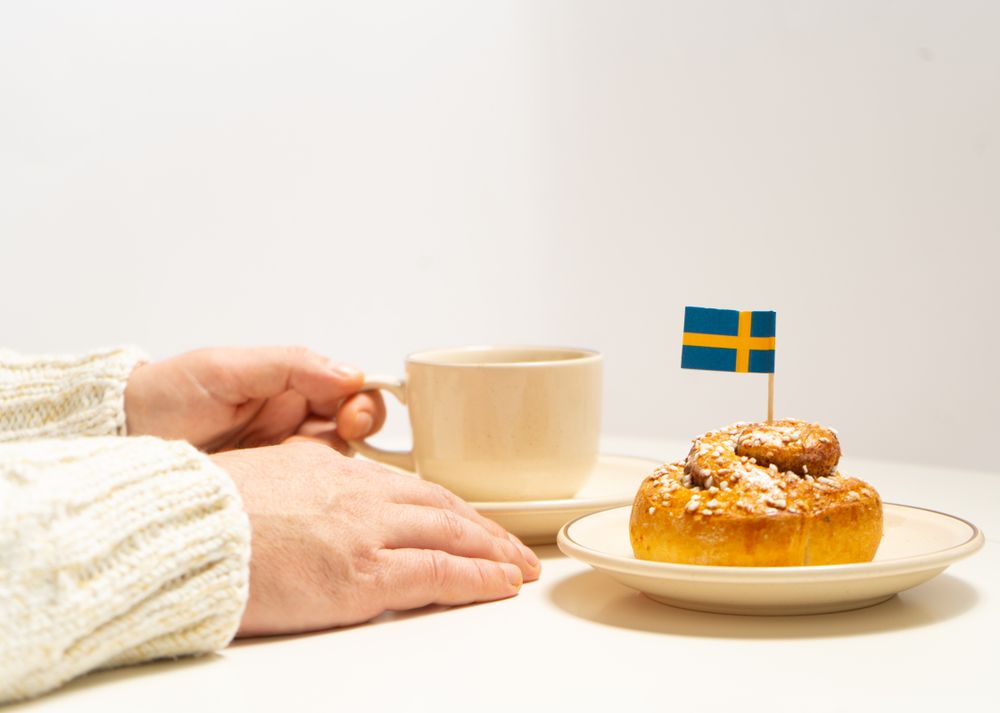The Importance of Fika Culture for Students in Stockholm
Discover the significance of fika culture for students in Stockholm and how embracing this Swedish tradition can lead to social connections, stress reduction, and improved productivity.

The Swedish tradition of fika – taking regular breaks for coffee and a snack, often accompanied by socializing – is a vital part of daily life in Stockholm. For students, both local and international, embracing fika culture can lead to numerous benefits such as improved social connections, stress reduction, and enhanced productivity.
Many notable universities across Sweden host fika gatherings for their international students to both introduce them to this local cultural tradition, as well as help them break the ice with their fellow students – including Stockholm University, Uppsala University, and others.
In this blog post, we will explore the importance of fika culture for students in Stockholm and how this delightful custom can contribute to a successful and enjoyable study experience.
What is "Fika"?
Fika is a Swedish tradition that revolves around taking a break during the day to enjoy coffee, often accompanied by a sweet treat like a pastry, cake, or biscuit. More than just a coffee break, fika is a social event that emphasizes relaxation, conversation, and taking a moment to unwind from the day's tasks. It's an essential part of Swedish culture and daily life, and fika breaks can occur at work, school, or even in social settings with friends and family.
In essence, fika is about making time for a moment of leisure and connection with others, promoting a healthy work-life balance and fostering a sense of community.
Why is Fika Important?
Social Connections and Camaraderie
Fika culture encourages students to engage in conversations and build relationships with their peers, classmates, and even professors. This sense of camaraderie is particularly important for international students who are adapting to a new environment, as it helps create a feeling of community and belonging.
Networking Opportunities
Informal networking is an often-overlooked aspect of fika culture. Coffee breaks provide students with opportunities to connect with professionals, researchers, and fellow students in their field. These connections can lead to potential collaborations, internships, or job opportunities in the future.
Stress Reduction and Relaxation
Taking regular breaks to enjoy fika can help students manage stress and maintain their mental well-being. By stepping away from their studies and engaging in light-hearted conversations, students can recharge, refocus, and prevent burnout.
Cultural Immersion
For international students, participating in fika culture is a way to immerse themselves in Swedish culture and customs. This can help them feel more at home in Stockholm and facilitate a smoother adjustment to their new surroundings.
Improved Productivity and Work-life Balance
Contrary to what some may think, taking regular breaks for fika can actually improve students' productivity. Stepping away from their work for a short period allows them to return with a fresh perspective, often leading to better problem-solving and decision-making abilities. Furthermore, fika culture promotes a healthy work-life balance, ensuring that students make time for relaxation and socializing amidst their busy schedules.
Stockholm is home to numerous cafes and coffee shops that are perfect for enjoying a traditional fika with friends or classmates. From quaint, historic cafes to trendy, modern coffee shops, the city offers a wide variety of options for students to explore and find their favorite fika spot.
Fika Etiquette
For international students, it's essential to understand and respect the cultural norms surrounding fika. Here are some important etiquette facts to keep in mind:
- Fika is a social event: Fika is not just about enjoying coffee and pastries, but also about connecting with others. Engage in conversation, listen to others, and make an effort to socialize during fika breaks.
- Share the responsibility: If you're participating in a group fika, it's polite to take turns in bringing treats, making coffee, or even hosting the fika at your place if possible. Contributing to the fika shows respect for the tradition and the people involved.
- Be punctual: Arriving on time for a fika is crucial, as it demonstrates respect for the host and other participants. If you're running late, it's polite to inform the host or organizer.
- Don't rush: Fika is about taking a break and relaxing, so avoid being hurried or constantly checking the time. Allow yourself to fully engage in the experience and enjoy the moment.
- Try different treats: When attending a fika, it's an excellent opportunity to sample traditional Swedish pastries like kanelbullar (cinnamon buns), semlor (cardamom buns filled with almond paste and whipped cream), or prinsesstårta (princess cake). Be open to trying new things and expanding your palate.
- Clean up after yourself: When attending a fika at someone's home, a coworking space, or a public area, it's polite to clean up after yourself, wash your dishes, and help with tidying up if necessary.
- Show appreciation: Express gratitude to the person who prepared the fika or brought the treats. A simple "tack" (thank you in Swedish) can go a long way in demonstrating your appreciation for their efforts.
By understanding and respecting these etiquette rules, international students can fully embrace fika culture and enjoy a meaningful experience while studying in Sweden.
Conclusion
Incorporating fika culture into their daily routine can have a profound impact on a student's experience in Stockholm. By embracing this cherished Swedish tradition, students can enjoy a well-rounded and fulfilling study experience that balances academics, social connections, and personal well-being.
As students continue to explore the city and its vibrant fika culture, finding a comfortable and compatible living arrangement is essential to make the most of their time in Stockholm. Hemavi, a matchmaking service for roommates and shared accommodation, ensures that students find a safe and harmonious living environment that caters to their needs and preferences. By choosing Hemavi, students can focus on enjoying their fika breaks and building lasting connections in their new home.




Comments ()